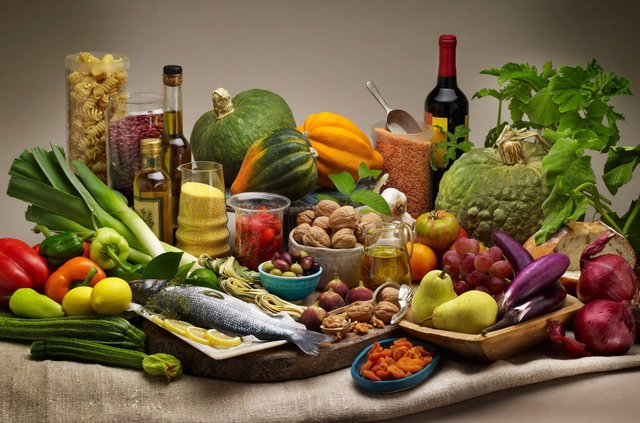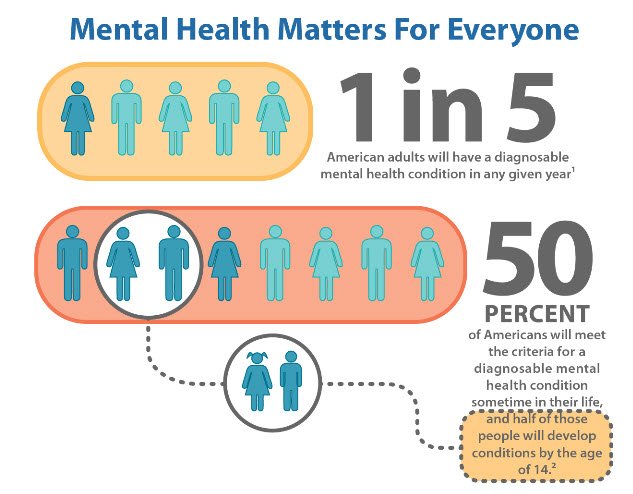Nutrition's Role In Mental Health [Foods For Healthy Thoughts]
During the 1600's early scientists notice a strange coincidence.
Ships that carried limes on board had drastically reduced cases of scurvy. But it wasn't until the 1800's that it became mandatory for sailors to have a supply of citrus fruits to prevent the disorder, which was caused by a vitamin C deficiency.
In our modern world, there are known links between nutrient deficiencies and various disorders. From cancers to heart disease. In recent times a push has been made to increase awareness of the link between mental health and nutrition.

I'm not claiming that poor nutrition is the cause for mental health issues, though in some cases it is possible.
It seems intuitive that a well fed body would lead to a healthy mind. Studies have been conducted focusing on certain vitamins and minerals that are often lacking in those diagnosed with depression and anxiety.
There have also been studies showing that some nutrients, when provided in recommended amounts or even in excess can improve the recovery rates of certain disorders when paired with traditional antidepressants and other medication.
This post will share an outline of these nutrients and what foods to source them from.
This isn't a cure... But for those suffering from mental health issues it's critical to understand nutrition's role when seeking improvements and prevention.
The Nutrient Links
Proteins
Lowered intake of the amino acid tryptophan. This is used by the brain to make serotonin. Serotonin is one of the chemicals that makes you feel happiness and love.
Fats
Omega-3's*. This long chain fatty acid makes up 30% of your brains gray matter.
Carbohydrates
Complex carbs, such as whole grains and legumes, provide your brain with the energy it needs to do the thinking thing.
Minerals
- Calcium*
- Chromium
- Iodine*
- Iron*
- Lithium
- Selenium
- Zinc*
- Magnesium
Vitamins
- The B complex, especially 2, 6 and 12
- Folate
- Vitamin D*
*Australia's 6 most common nutrient deficiencies...
This is pretty concerning, especially seeing that 1 in 5 Australian surveyed in the last 12 months have experienced symptoms of a mental health disorder. American statistics are incredibly similar.

Scientists are still unsure about how these nutrients affect brain function. Some believe it has to do with the cultivation of good stomach bacteria. Others think they are needed to create the neurochemicals the brain uses to regulate mood. Most likely it's both as well as other, unexplored reasons.
Things to add!
I'm including only plant based foods so as to suit all diets, keep in mind however that a purly plant based diet is often deficient in vitamin B-12 and may need to be supplemented. For those who don't mind eating fish and lean meats... Do it!
Flaxseed (oil or crushed)
A source of omega-3's and can be lightly poured over a meal or the milled seeds can be added to shakes. The milled seeds are also a great source of dietary fiber.
Nuts (especially Brazilian and walnuts)
These are some of the richest sources of omega-3's. They also have selenium and other minerals while being a great source of protein.
Avocados
Another great source of goods fats and B vitamins!
G-BOMBs (Greens, beans, onions, mushrooms, berries - especially cranberries for iodine)
This acronym was made famous by Dr. Fuhrman, a nutritionist who has helped thousands of people reverse diseases through diet. Everyone should be getting plenty of these, the list of benefits is huge!
Soy Products/Tofu
A vegan friendly source of protein and some versions may be fortified with vitamin B-12.
Pineapple
I think pineapples are delicious, plus they are a great plant based source of the amino acid tryptophan!
This is only a short list, but try eating as many of these foods as you can on a daily basis.
Be proactive and share what you now know!
It took some 200 years for early scientists and the public to make the link between citrus fruits and scurvy. We have come such a long way since then scientifically.
We have to be proactive when new research makes links between nutrition and modern disorders. When they are as common as 1 in 5, it's time we start doing everything we can to make improvements.
Small changes, when done consistently, lead to major results!
Sources
https://www.ncbi.nlm.nih.gov/pmc/articles/PMC2738337/
http://www.deakin.edu.au/about-deakin/media-releases/articles/world-first-trial-shows-improving-diet-can-treat-major-depression
http://www.health.harvard.edu/blog/nutritional-strategies-to-ease-anxiety-201604139441
http://www.medscape.com/viewarticle/875236
http://www.webmd.com/depression/guide/diet-recovery#1
http://newsletter.hcf.com.au/snapshot-australias-top-nutritional-deficiencies/
Thanks for reading! I hope this article has empowered you to live a healthier life and you share this knowledge with others.
Yours, with Purpose

Thanks for sharing but I have to say that:
You have a wrong information. Brain DOESN'T need carbohydrates in order to do the thinking thing. When body runs out of glucose, liver produces keton bodies by burning fat, and these keton bodies are far more efficient energy source for brain.
uhm, no. first of all, it's 'ketone' not 'keton'.
while it's true ketones can become the predominant fuel source, glucose is required by the brain at all times - lookup Cahill's research from the late 60s (start with that). when no dietary carbohydrate is provided, glucose is made endogenously - to supply the brain and other dependent organs and tissues in the brain.
Sorry, it's keton in my primary language. Again, what was my point? Brain doesn't need carbohydrate intake! He is talking about the importance of whole grains there, that is absolute bs, and misinforming.
Harry, great post, you've clearly read my mind.
Thank you friend! I've been slow on posting this last week but I knew this had to be posted. I'm glad you approve :)
Really great post mate. I liked that you focused on minerals and vitamins also. People generally focus on macros and not on micros. The major deficiency is zinc and iron and according to my research, magnesium also. That's why many people focus on ZMA supplement. Thanks for sharing :D